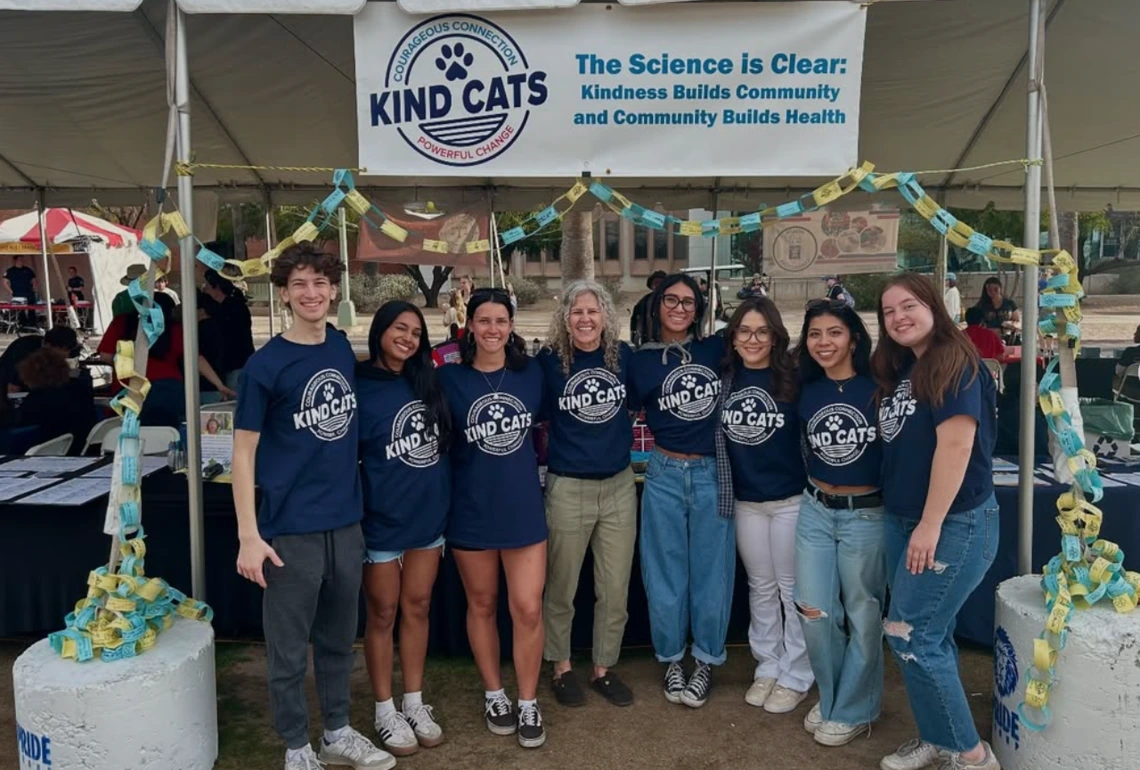
Engaging community to develop and implement a theory-based, empirically driven model for the collective practice of kindness.
The science is clear - KINDNESS is vital for human health and well-being.
Kindness is communicated in interpersonal interactions, through organizational leadership, policies, practice, and even built environments. But as much as we want to be kind as individuals, organizations, and communities, we often struggle to communicate kindness consistently. SciKind aims to contribute to the creation of a community of practice to increase kind behavior for the benefit of all.

Kindness is essential
It strengthens our health, relationships, and communities—whether at home, in schools, or at work. Kindness builds positive social connections that support well-being and longevity. In organizations, it boosts outcomes for both consumers and employees. Despite its benefits, kind behavior is still lacking in many spaces. That’s why we use evidence-based models to better understand and promote kindness where it matters most.
Community of Practice
A group of people who share a concern or a passion for what they do and learn how to do it better as they interact regularly.
- Wenger, McDermott, & Snyder, 2002

Discover how kindness is being studied and supported across campus
Explore our science-based approach and meet University of Arizona scholars who are advancing research and practices that promote kind behavior in real-world settings.
Learn More



